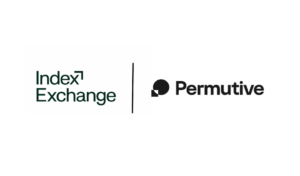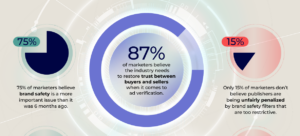For the 10th consecutive quarter, UK marketing budgets were revised upward in the third quarter of 2023, according to the latest IPA Bellwether Report. However, outlooks for the industry continue to lean toward the negative.
Of the firms surveyed, 21.1% increased their total marketing spend in the three months to October, versus 15.8% which downgraded budgets. The net balance of +5.3% represents the weakest quarter for growth since the end of 2022.
The strongest performing segment was main media advertising, which recorded a +7.4% net balance – a significant improvement on the -2.5% recorded previously. Within this category, other online advertising achieved a net balance of +9.1% (from +8.3%), with expansion also coming in video (+0.9%, from +3.2%) and published brands (+0.8%, from -5.0%). On the other hand, audio (-10.8%, from -8.0%) and out of home (-12.1%, from -7.1%) saw their contractions worsen.
Events continued a strong sequence of increases, which begun in Q1 2022, achieving a net balance of +5.9%, though down from +9.8%. Other areas of budget growth included direct marketing (net balance of +4.3%, from +7.3%) and public relations (+4.0, from -1.9%).
The remaining three segments included in the Bellwether survey recorded spending cuts, with other forms of marketing seeing a net balance of -7.9%, and market research and sales promotions both -1.5%.
“Against a backdrop of economic stagnation and ongoing elevated levels of inflation in the UK, coupled with increasing global geo-political volatility, the trading environment for companies is unquestionably tough. But instead of seeing a re-run of last quarter’s slightly concerning results where companies revised up their short-term sales promotional activity to record amounts while reducing their main media spend, this time we are buoyed to see a more considered, reverse state of affairs,” said Paul Bainsfair, IPA Director General.
“This quarter, those companies that can are heeding the evidence that in general, investing more in main media will help to steady them through the uncertain times and help to ensure the longer-term health and profitability of their brands. Crucially, they – alongside the many investment analysts we have also recently surveyed – are recognising that marketing spend is indeed an investment not a cost.”
Company-own and industry-wide sentiment saw little change between Q2 2023 and Q3 2023.
There was modest optimism around company-own financial prospects, with a net balance of +5.2% from 25.4% upbeat respondents versus 20.2% feeling more pessimistic.
When looking at the wider industry, 24.9% of respondents reported feeling downbeat compared to just 12.1% being positive. The net balance of -12.7% represented little change from the -12.6% of the previous quarter.
The report’s author S&P Global Market Intelligence forecasts that ad spend will fall 0.6% and 0.4% in 2023 and 2024 respectively. It’s predicted growth won’t be seen until 2025, when an increase of 1.3% is expected.
The overall UK economy is believed to be on course to a growth of 0.3% in 2023, but set to contract by 0.1% in 2024, before returning to growth in 2025.
“As storm clouds gather over the UK economy, it’s encouraging to see total marketing budgets hold firm in expansion territory. We saw last quarter that firms had become concerned by persistence of the cost-of-living crisis, which drove a record rise in sales promotions spending,” said Joe Hayes, Principal Economist at S&P Global Market Intelligence and author of the Bellwether Report.
“In the latest quarter, however, firms have gone back to brand-building, with anecdotal evidence suggesting that this move has been made both defensively and offensively. With demand conditions coming under pressure, companies will have to position themselves strongly to stand out from their competitors.”











